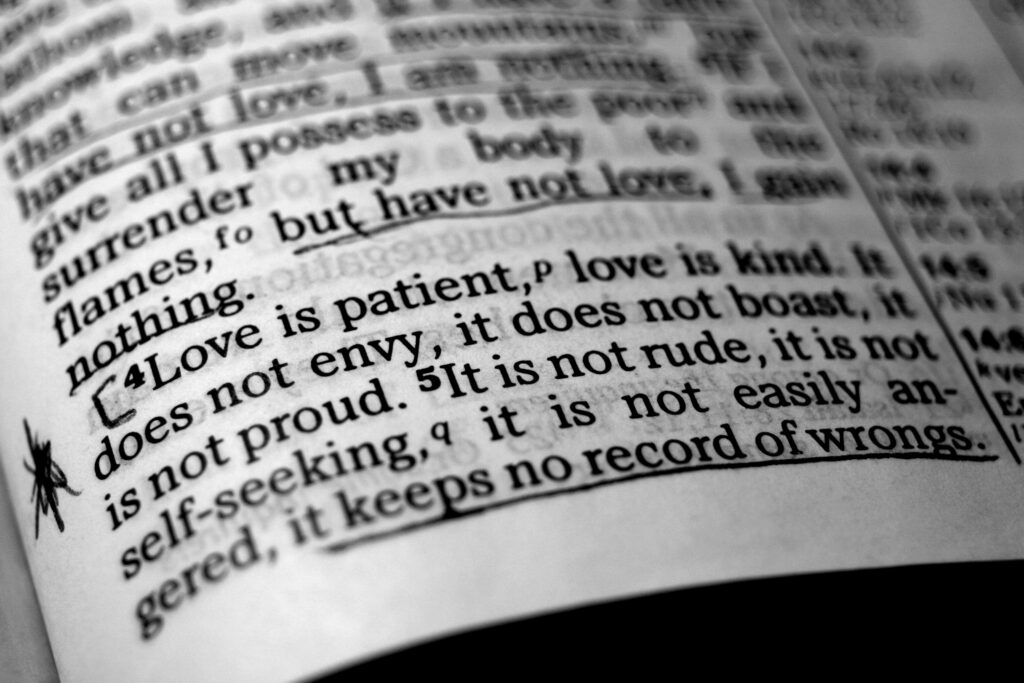1st Corintians 13 – the Love Chapter – is the chapter God designated to describe the love He has for us. It’s agape-love, one of four types of love in the language of ancient Greeks, the language in which the Bible was written. Agape-love is essentially what Jesus came to introduce to the world; it’s basically grace, unmerited favor, and the core ingredient of the gospel, the good news that the kingdom of Heaven is here to receive us as citizens through faith in Jesus.

Agape-love is not only the way God loves us, but the love He also calls us to have for each other. Of all human relationships, which one is most important to include agape-love? It has to be the marriage relationship. Husband and wife giving to one another favor without requirement is, perhaps, the most effective illustration for an onlooking world of God loving His people.

If we zoom in on 1st Corinthians 13, into verses 4 through 8, we see something remarkable right there in verse 7. It says there that agape love always trusts
If we take it at face value, which is the right approach for all of God’s Word, we know that God always trusts us.
If you’re like me, you don’t feel right accepting that God (the supremely trustworthy) trusts us (the utterly untrustworthy). Shouldn’t it be the other way around? Shouldn’t we be the ones trusting Him?
Our problem is that we tie trust to expectation. Agape-love doesn’t do that. Agape love trusts without regard to the recipient’s track record of stewardship.
Even though we haven’t managed our money well in the past, God continually provides for our needs.

Almost every resource God has placed into my hands I’ve mismanaged in some way. I’ve squandered, wasted, abused and undervalued God’s blessings in my life, yet He hasn’t stopped pouring them into my life.
Trust means to commit something to; it isn’t a mere attitude or mental stance. It requires action, the action of committing something to a recipient.
What’s preposterous is that God trusts us, knowing our handling of the resource will be flawed. He doesn’t require expectation be met before trusting us with resources.
Imagine a marriage where the spouses give freely to each other, not requiring expectations be met, and they keep on giving to each other without regard to track record. This is trust in marriage.

Trusting the untrustworthy isn’t without problems. There will be pain and loss, just as Jesus endured pain and loss in trusting us with His life, His body. God has ways of helping us deal with the pain and loss, but the solution isn’t to stop trusting. He’ll help us navigate those difficult waters, all while we continue to trust.

Why? Because agape-love always trusts. This is agape-love. And this is trust in marriage.
